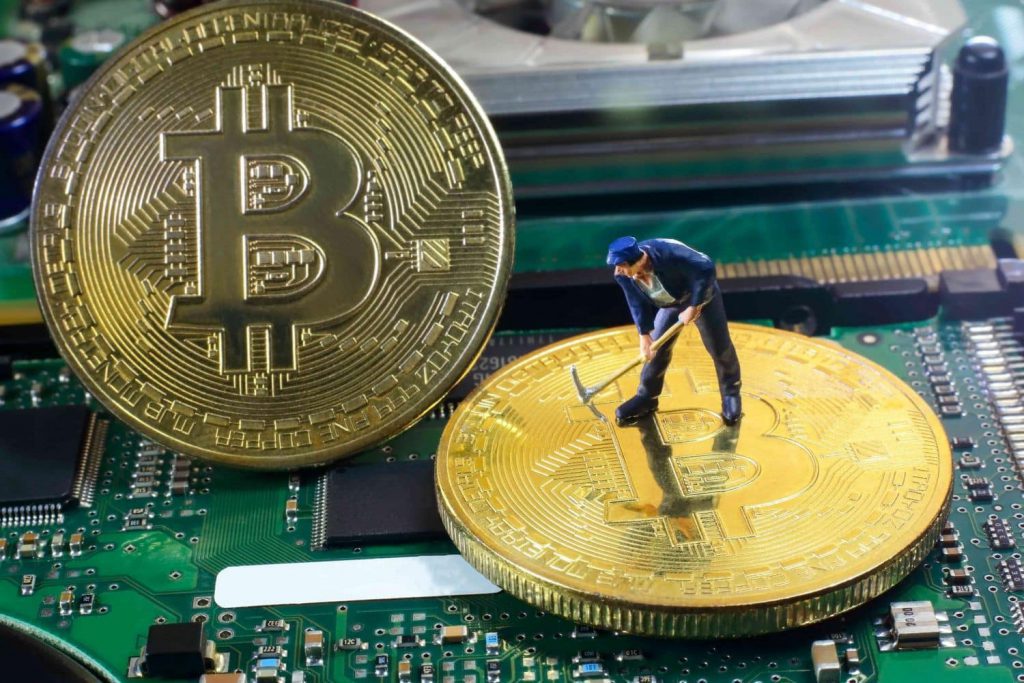Bitcoin passed a historic benchmark on Friday with the issuance of 19 million coins.
This means that there are only 2 million coins remaining for anyone interested in taking ownership of the most sought-after digital asset in the world.
BTC is trading at $46,750 on Coingecko as of early Saturday evening, up 5.5% in the last seven days.
According to CryptoVault Chief Executive Officer Kjetil Hov Petersen, while many may consider this a minor quantity, the remaining units may best symbolize the mining days to come.
As evidenced by a blockchain examination, the network has now exceeded the 19 million cryptocurrency mark. The mining of the 19 millionth BTC occurred on block 730,000 of the network.
Suggested Reading | New Crypto Survey Shows 53% Of Americans Think Cryptocurrencies Will Be The ‘Future Of Finance’
Nakamoto Wanted Bitcoin To Be Finite
When Satoshi Nakamoto, the enigmatic brains behind the cryptocurrency, built the Bitcoin network, the inventor set the maximum supply to 21 million and study suggests that the amount is less than 21 million.
Some estimates claim there will only be 20,999,817.31 units of the crypto.
Many members of the BTC community were eager to applaud the historic feat Friday, highlighting the event’s significance.
Other members of the Twitter community pointed to the notion that mining the coin’s remaining numbers will take the next 100 years.
Suggested Reading | Holy Cowl, Batman! DC To Sell 200,000 Batman NFT Collectibles, Aims To Rake In $60 Million
Therefore, what happens to Bitcoin once all 21 million have been mined?
One of the most distinguishing qualities of the crypto is its finite supply.
Nakamoto developed the cryptocurrency primarily as a form of digital gold and capped the total supply of BTC to replicate the finite supply, in physical terms, of the precious metal.
Numerous cryptocurrencies have a cap on the total number of tokens that can be produced during their lifetime.
This is done for a variety of reasons, including keeping inflation at bay, producing artificial scarcity, price manipulation, and enhancing the token’s appeal.
Scarcity Equals Buying Frenzy
With the number of new bitcoins released per block slashed every four years, by half, experts anticipate that by 2140, all leftover bitcoins will be fully mined.
When the crypto was founded, the amount of new BTCs created each block was 50, but has since fallen to 6.25 as of May 2020.
Because of Bitcoin’s restricted availability, it would become a more valuable item. The crypto asset’s scarcity will almost certainly result in a purchasing frenzy.
And as fear of missing out (FOMO) sets in, BTC’s price will rapidly climb as a result of the high demand for the crypto.
According to Chainalysis, a blockchain analytics company, one-fifth of all Bitcoins mined have been lost.
Numerous Bitcoins are stored in wallets that are no longer accessible owing to forgotten passwords or destroyed physical hardware.
The Vaunted $1 Million Price Tag
Additionally, the cryptocurrency industry has predicted that the resulting scarcity of Bitcoin would help drive the asset’s price higher, with some expecting a base price of $1 million — or even higher.
Many feel that the asset might even become a worldwide reserve asset, accelerating its adoption.
BTC Mining Difficulty Up
Meanwhile, just as miners assisted in the release of the 19 millionth BTC on Friday, the BTC network’s mining difficulty increased to an all-time high of 28.587 trillion.
The difficulty of the Bitcoin network is proportional to the processing power needed to mine BTC blocks, which presently requires a hash rate of 201.84 exahash per second (EH/s), data from Blockchain.com show.
Featured image from TechStory, chart from TradingView.com


